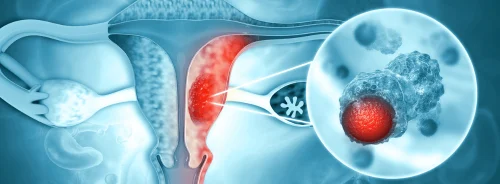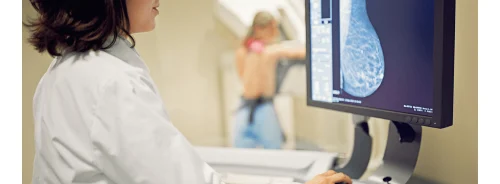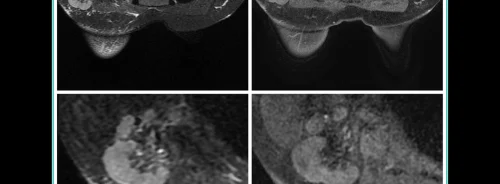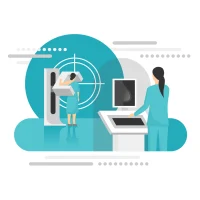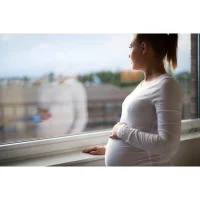The ongoing coronavirus pandemic has taken a tremendous toll on global humanity, upending life as we know it and resulting in millions of lives lost across the world. In order to handle and best serve the constant influx of COVID-19 patients, health care facilities all over Europe have had to make sacrifices and reallocate resources, leading to delays and cancellations of certain elective, yet essential health care activities.
In particular, preventative health screenings for diseases such as breast cancer have undergone widespread postponement in the interest of prioritising coronavirus care. While breast cancer screening can be considered elective, they are essential to ensuring the health and wellbeing of women across Europe, as the disease kills more European women than any other cancer.1 In 2020, the pandemic disrupted countless breast exams throughout the continent:
- Italy: From January to September of 2020, the number of breast cancer screenings performed in the country decreased by 43.5% while the National Health Service sent out nearly 950,000 less screening invitations compared to the year prior.2 As a result, an estimated 2,793 breast cancers potentially went undiagnosed in Italy during this timeframe.2
- France: Breast cancer diagnoses in the country decreased by an estimated 50% between March and May of 2020, compared to 2019, as the country went into an initial lockdown.2
- Spain: Almost one in four women in the country had a breast cancer screening appointment cancelled and more than one in three reported that their screening was delayed during 2020.2 Half of these reported screening delays exceeded three months.2
- United Kingdom: Nearly one million breast screening appointments were delayed, and an estimated 10,725 breast cancer cases went undetected in 2020 across England, Wales, Scotland and Northern Ireland, combined.2
The importance of early detection of breast cancer via mammograms is widely recognised. Delays and cancellation in breast cancer screening services could be devastating for women’s health in Europe, as pandemic-related postponements of cancer diagnosis and treatment in England alone are estimated by some to result in approximately 18,000 additional cancer-related deaths over the next 12 months.3
If country screening programmes are to address the backlog, they need to consider how innovative technologies can help. These include artificial intelligence (AI) technologies, which are crucial to enabling optimal health outcomes, as they have the power to augment, rather than replace, the expertise and skills of radiology professionals.
AI tools are already being utilised across the health care landscape and can greatly benefit radiology departments. Technologies such as Hologic’s 3DQuorum™ Imaging Technology, Powered by Genius AI™, are designed to improve mammography workflows, helping clinics better manage breast screening backlogs and ensuring patients receive the care they need in an efficient manner. AI can also help with risk stratification, identifying and prioritising screening for women with a high risk of breast cancer e.g. women with dense breasts. Dense breasts make it more difficult to identify cancerous cells in standard mammograms meaning cancers may be missed or women are recalled for unnecessary further investigation.
The COVID-19 pandemic has changed our world in countless ways and its effects will be felt for years to come. While the pandemic has caused screening delays across Europe, perhaps its legacy won’t be these postponements, but that it was a turning point to how services are delivered, creating a health care landscape that provides patients with better care than ever before. By matching the incredibly resilient and inventive passion demonstrated across healthcare throughout these times with innovative technologies optimised for the future, we can not only recover but revolutionise the field moving forward.
References:
1 International Agency for Research on Cancer. Cancer Today - Estimated number of deaths in 2020, worldwide, Europe, females, all ages. https://iii.hm/1bms Last accessed 6 July 2021
2 MISC-07567-EUR-EN Finsbury International Policy & Regulatory Advisers (2021). Impact of the COVID-19 pandemic on breast cancer screening in Italy, France, Spain and UK. Internal FIPRA report. Unpublished.
3 Lai A, Pasea L, Banerjee A, et al. Estimating excess mortality in people with cancer and multimorbidity in the COVID-19 emergency. BMJ Open 2020;10:e043828. doi:10.1136/bmjopen-2020-043828

